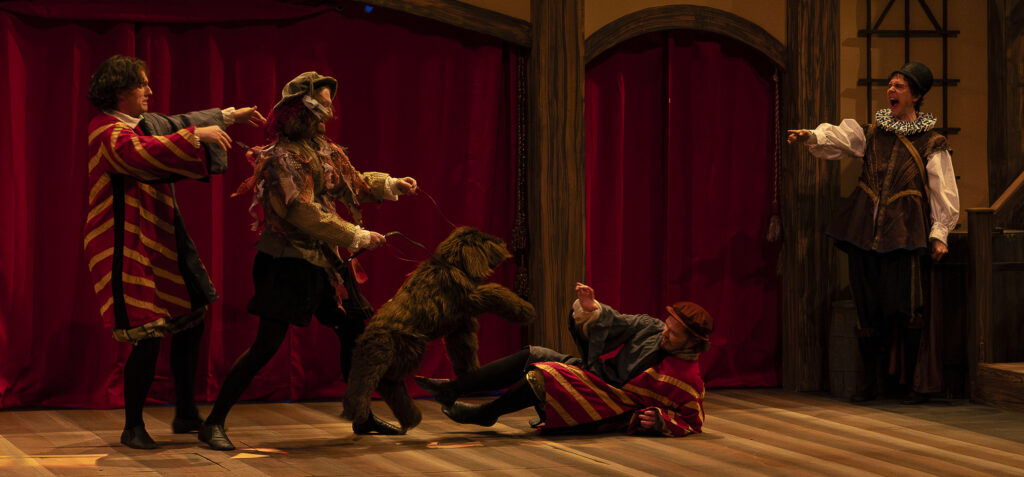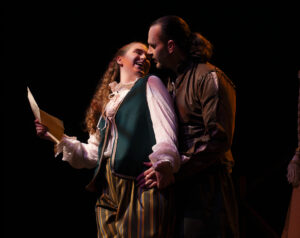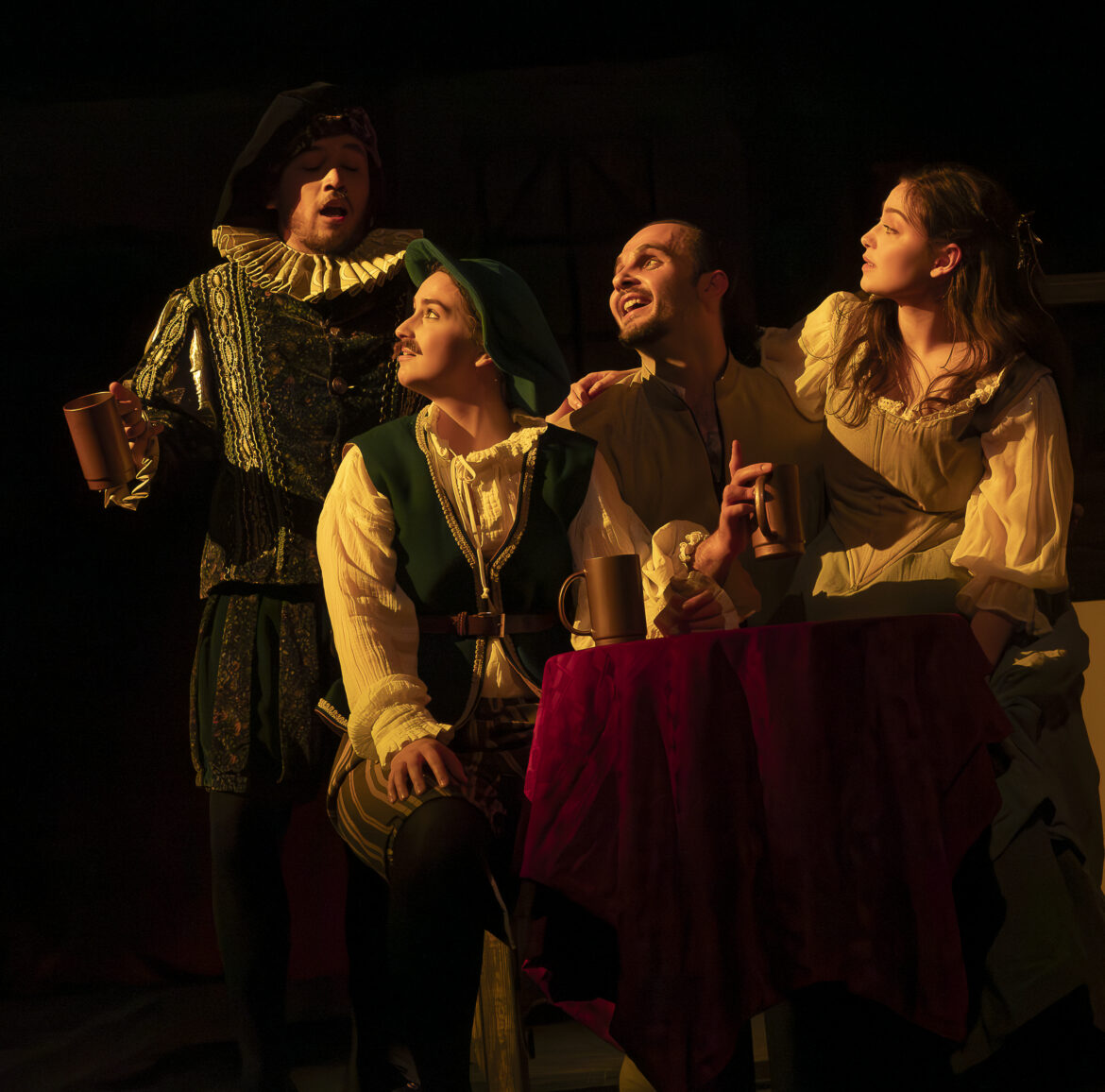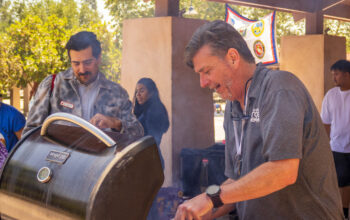“Shall I compare thee to… something?” are not exactly the words that come to mind when thinking of the great playwright William Shakespeare, and seem unfinished at best. Yet, as one of the opening lines of LAPC Theatre’s newest play, they successfully got a good laugh and introduced the audience into the fictional Elizabethan world of “Shakespeare in Love.”
Lee Hall’s stage adaptation of Marc Norman and Tom Stoppard’s screenplay “Shakespeare in Love” premiered on the Performing Arts Mainstage on Friday, starring Deniz Boysan as William Shakespeare. The performance, directed by Shaheen Vaaz, was LAPC Theatre’s concluding show for the 2024 spring season.

This fast-paced play was layered with forbidden love and scenes of farce humor, all while exhibiting the woes of a creative’s mental block.
“Shakespeare in Love” also gives viewers a glance into the difficulties of being a woman who longs to act in Elizabethan times and the extremes people will go to in the name of love and theater.
Set in London during the late 1500s, the play follows William Shakespeare as he overcomes a creative plateau. The show opened with Shakespeare centerstage developing the now iconic poem “Shall I compare thee to a summer’s day,” while an entourage playfully followed him from side to side with every failed attempt.
From there, viewers are quickly introduced to other vital characters such as Kit Marlowe, Shakespeare’s right-hand man played by Ali Suliman, and Viola De Lesseps, the daughter of a wealthy merchant who yearns to be onstage, played by Fiona Morris.
With a relatively modest set, consisting of a two-story building lined with staircases that acted as a theater and a bedroom balcony along with two more side sets as pubs in the background, Shakespeare revealed he was pressed for time to create a new play and was stuck in his creative process.

“Lovely, temperate, and thoroughly trite,” as described by Kit Marlowe, the playwright seemed to not move past his mental hindrances.
Regardless of his half-finished screenplay, he announced auditions for “Romeo and Juliet.” These auditions also proved to be chaotic when individuals with debilitating stutters or no theatrical talent turned up.
When all hope was thought to be lost, Viola De Lesseps in disguise, strolled in to audition. An enamored Shakespeare later left her a note informing her she got the part.
Throughout the play, seemingly small acting choices added up to seriously develop each character, both main and ensemble-wise. Every talent was put to use on stage with a combination of award-winning actors, like Joshua Gould and Dale Van Slyke, along with fresh blood who made their debut to flesh out this multi-edged story.
As Slyke, who played Fennyman, listened in on a conversation, his body language subtly began to change—his foot started to tap and his fist clenched bit by bit until he burst into an argument and yelled.
When seen, an ensemble member walked on just his heels, his toes completely up, adding a little extra touch to his character.
From discreet fist clenching to comical roughhousing in the background, the cast brought the script to life and created a whole new world.
While there was not much music involved, lighting certainly helped to create further depth on stage. Individual heavy spotlights and lighting behind sets allowed for a deeper lens into the character’s emotions, and at times, clarification in terms of where the story was set.
Though the play did not have a cliche ending for its main characters, the loose ends were still tied up for William Shakespeare. This romantic drama is sure to take viewers through a whirlwind of emotions and produce a good chuckle along the way.




